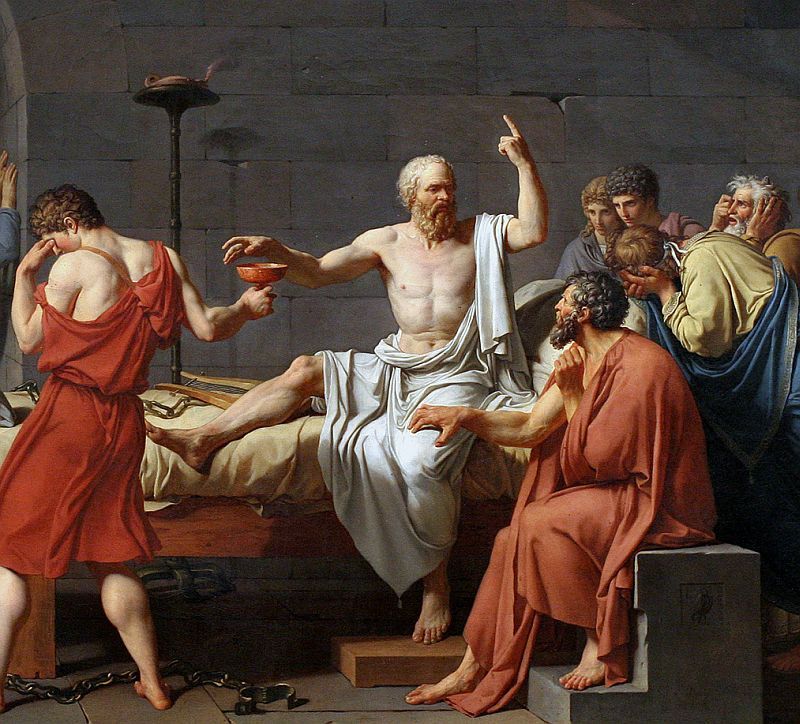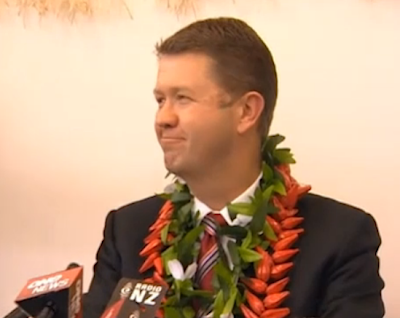The Member For Cheshire: But is David Cunliffe grinning from ear-to-ear at the 2012 Ellerslie conference because Labour’s membership has just seized control of their party, or is it because he knows that his pathway to Labour's leadership had just been cleared?
WERE YOU TELLING THE TRUTH, DAVID? When you told your party
that the age of neoliberalism was over? That you, alone among all your
colleagues, had grasped the meaning of the global financial crisis, and only
you could lead Labour to an election victory that would restore New Zealand to
itself?
Because they believed you, David. They believed you and they
fought for you.
I remember the collective thrill that reverberated through
the party conference at Ellerslie when Len Richards told the delegates that it
was time to “take our party back!” That’s when the cameras homed in on you,
David, seated there in the midst of your New Lynn delegation (not lined up at
the microphone to oppose the democratisation of the party like so many of your
caucus “colleagues”). And you were smiling, David. You looked elated.
But, were you smiling because Labour’s membership had
finally seized control of their party, or was it because you knew that the
pathway to the leadership was now clear?
That’s what your enemies said, David. They said you looked
like a cat who’s got the cream. And, my, how they rounded on you: accusing you
of fomenting a coup against David Shearer. Do you recall the poisonous
outbursts of Chris Hipkins? Your demotion to the back benches? The vicious
harassment of your allies Charles Chauvel and Leanne Dalziel?
The ‘Anyone But Cunliffe’ faction tried to break you.
But they failed, didn’t they, David? Because, throughout it
all, the rank-and-file of the party and the affiliated trade unions remained
loyal. And, when Shearer finally threw in the towel, they knew what to do. Over
the strenuous efforts of a majority of the caucus, they elected you Leader of
the Labour Party. The moral and political lethargy of their MPs had driven the
membership close to despair – and you were their Great Red Hope.
So what happened, David?
One of the polls taken at the conclusion of the leadership
contest put Labour on 37 percent – placing it within striking distance of 41.2
percent, Labour’s best ever election result under MMP, and just a couple of
percentage points away from Labour’s winning Party Vote of 38.7 percent in
1999. You had momentum, David. New Zealanders liked your message. Labour’s
social-democratic values were threatening to come back into fashion.
And then everything went quiet. The 2013 conference, which
should have been a rapturous coronation, was a curiously strangled affair. Your
more radical supporters were “persuaded” to pull their punches on important
left-wing issues like the Trans-Pacific Partnership and the age of eligibility
for NZ Superannuation. The uncompromising language of 2012’s Draft Party
Platform was watered-down to the point of blandness. Doubters were reassured
that Cunliffe was still Cunliffe. That it was a matter of priorities. That, for
the moment, “party unity” was paramount.
“Party Unity” – is that what this is all about? Party Unity.
Of the sort we saw demonstrated last week by the likes of Kelvin Davis, Phil
Goff, Chris Hipkins and Trevor Mallard? Forgive me, David, but that didn’t
strike me as evidence of a unified party. That looked to me like the ABC
Faction flexing its muscles. And you, David. How did you respond to their rank
insubordination and strategic stupidity? Did you slap them down? Did you bring
them into line? Like hell you did! You caved. Cravenly and very publicly,
David – you caved.
It’s time for you to wise up, David. The voters who thrilled
to your election as Labour’s leader won’t take much more of this. Nor will
Labour’s left-wing membership. If they had wanted a continuation of the
political lethargy and ideological flabbiness that’s characterised their
party’s parliamentary leadership since Helen Clark’s departure, then the
rank-and-file and the unions would have given their votes to somebody else.
That the Labour Left spurned your opponents was due in no
small part to their interpretation of your “The Dolphin and the Dole Queue”
speech. They simply assumed that you were readying the country for a Labour-Green
coalition, and that this combination would generate a mix of policies well to
the left of the caucus’s conservative positions. You can imagine the
alarm-bells that started ringing when Labour firmly rejected Russel Norman’s
suggestion of a joint Labour-Green campaign effort. Even more alarming was your
own use of Winston Peters’ spurious justification for giving nothing away until
after the votes have been counted.
In God’s name, man! What do you think Labour is? A minor
party! Peters’ uses his “wait until the voters have had their say” line to give
himself maximum flexibility when it comes to choosing coalition partners, and
to prevent the desertion of his supporters (who are drawn from both
the Left and the Right) by stating a clear preference for one over the other
before polling day. Are you really telling the world that Labour is now so
bereft of ideological confidence and coherence that it must resort to Winston’s
opportunistic tactics? Is that how bad things have got? That you need to trick
people into voting Labour?
Because if that is the situation, then let me tell you where
Labour is headed. It is headed in the direction of entering a Grand Coalition
with National. No, don’t shake your head in derision, in many ways the MMP
system lends itself to this solution (and in MMP’s birthplace, Germany, there
have been a least two Grand Coalition governments since 1947).
Just work your way through it logically.
If the Labour caucus is unwilling to concede ground on
policy matters to the Greens; if this is the reason so many of them would
prefer to work with the ideologically undemanding Mr Peters; and, if caucus’s
antipathy to the prospect of having to deal with Hone Harawira, Laila Harré,
Annette Sykes and John Minto is (at least) ten times greater than its hostility
towards the Greens; then what will happen if the only government (other than a
Grand Coalition) that can be formed when the votes have been counted is a Labour/Green/Internet-Mana
Party coalition?
Can you guarantee both your party and your electoral base
that the Labour caucus won’t split apart rather than accept the policy
consequences of such a radical coalition? Can you tell us that the ABCs
wouldn’t do what Labour’s Peter Tapsell did in the cliff-hanger election of
1993 – provide National the margin it needed to govern? If National was shrewd
enough to offer Labour the premiership in return for their joining a
“Government of National Unity” against “corruption and extremism”, can you
promise us you’d turn it down, David. That you’d tell National, Act, Peter
Dunne and the ABC’s to go to Hell?
Because I’m pretty sure I’m not the only person wondering
why David Cunliffe is suddenly so coy when it comes to the parties and the
policies he and his colleagues are willing to embrace. Why they cannot seem to
see the obvious electoral advantages of running a strategy of co-operation and
accommodation with the Greens and the IMP. Why it is that everybody – apart from
the Labour caucus – can see that, from a derisory 30 percent in the polls,
Labour cannot get to the Beehive on its own: that it must have allies.
You are where you are, David, because your party believed
that you would seek for those allies on the Left – not the Right. And now
they’re looking for some much needed reassurance.
So, David, tell them again: why do you want to be Labour’s
leader?
This essay was
originally posted on The Daily Blog
of Monday, 2 June 2014.










